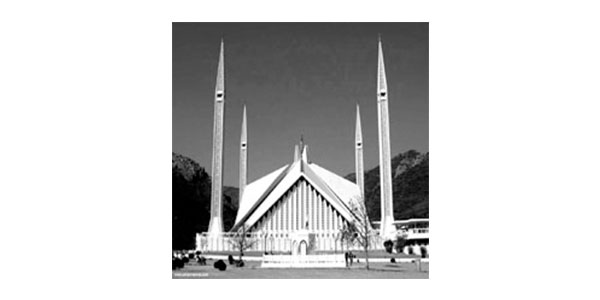Halloween and Islam
HALLOWEEN today is defined by children going house to house on the night of 31 October, dressed up in a variety of costumes collecting treats.
Although Halloween may seem like a time for children to have fun carving pumpkins and collecting candy, not many know the origins of this ‘festival’ and its traditions that date back centuries.
The origins of Halloween date back to the time of the Celtics or ‘Celts’. They were a group occupying the area that is now Ireland, the United Kingdom, and Northern France about 2,000 years ago.
This group celebrated their new year on November 1st. This day marked the end of the summer and was reflected upon as a time of darkness and cold as winter approached.
The Celtics associated this dark time of year with death. On 31 October they celebrated a festival called Halloween. This celebration was supported by the belief that the ghosts of the dead roamed the earth.
Priests (Druids) were believed to be able to communicate with these ghostly spirits and tell the future by doing so; by telling the ‘future’ many were given hope for the long, dark winter ahead.
The Priests built large fires on this night and the people gathered to burn crops and animals as sacrifices to the Celtic deities/gods.
During the festival they wore animal heads and skins as costumes. By the 800s A.D., the influence of Christianity had spread into Celtic lands.
In the seventh century, Pope Boniface IV designated November 1st as All Saints’ Day, a time to honour saints and martyrs.
It is widely believed today that the pope was attempting to replace the Celtic festival of the dead with a related, but church-sanctioned holiday.
The concept of Halloween is simple: you dress into a costume and go from door to door, asking for candy.
In the statement, trick or treat, there is an implication of a threat, but for the most part, that is not acted on.
Some young adults do egg houses or wrap people’s property with toilet paper. However, that is an exception, with the excuse of “it’s allowed because it’s Halloween.
Nonetheless, the act of celebrating Halloween entails that you must beg. Even if it’s an expected and well-established practice, it is still considered begging.
In Islam, there is a specific criterion for those allowed to beg, which is not permitted outside of that.
Those that beg must have a dire need – which is not the case during Halloween. Islam propagates the idea of conscious living, and upon the advent of Islam, it served to cleanse ignorant and superstitious practices.
Muslims have been ordered to work for a purposeful, beneficial cause for mankind. Indulging in prehistoric and ignorant practices can only lead to frittering away one life and thus making one an ultimate loser in the Hereafter.
The Holy Prophet(P.B.U.H) said: Begging is not lawful except to one of three (people): a man who has become a guarantor for a payment, for whom begging is lawful till he gets it, after which he must stop begging; a man whose wealth has been destroyed by a calamity which has befallen him, for whom begging is lawful till he gets what will support life; and a man who has been struck by poverty, the genuineness of which is confirmed by three intelligent members of his people, so it is lawful for him to beg.
The Holy Prophet (P.B.U.H) was sitting on the pulpit and talking about charity and abstention from begging, He said: The upper hand is better than the lower one, the upper being the one which bestows and the lower one which begs.
So Halloween in Islam is not a matter that should be taken lightly. The origin of Halloween is based on shirk -associating partners with Allah.
Halloween has its roots in the ancient, pre-Christian Celtic festival of Samhain, which was celebrated on the night of October 31.
The Celts, who lived 2,000 years ago in Ireland, the United Kingdom, and northern France, believed that the dead returned to earth on Samhain.
On the sacred night, people gathered to light bonfires, offer sacrifices and pay homage to the dead.
Even if you don’t consider yourself “celebrating” Halloween, do you want to associate yourself with rituals that anger Allah?
The issue of Halloween in Islam isn’t merely haunted houses and spooky masks. In accepting Halloween, we have directly rejected the first pillar of Islam – belief in Allah Alone.
No amount of fun, candy, or peer pressure is worth risking Allah’s displeasure. The Holy Prophet (P.B.U.H) said: A man came to him and asked him, O Messenger of Allah!
What are the two imperatives which lead to Paradise or Hell? He replied, He who dies without associating anything with Allah will enter Paradise, and he who dies associating partners with Allah will enter the fire.
Halloween in Islam makes it clear that it is a temptation we should stay far away from. Even if our children are excited about it, we, as God-conscious parents, should not be afraid to teach them better.
We still vaccinate them and give them medicine when they’re sick because we know it’s good for them.
They may not like it now, but they will understand later it was all for their own good. May Allah protect our children and keep them on the straight path always.
Ameen.
— The writer is contributing columnist, based in Islamabad.









